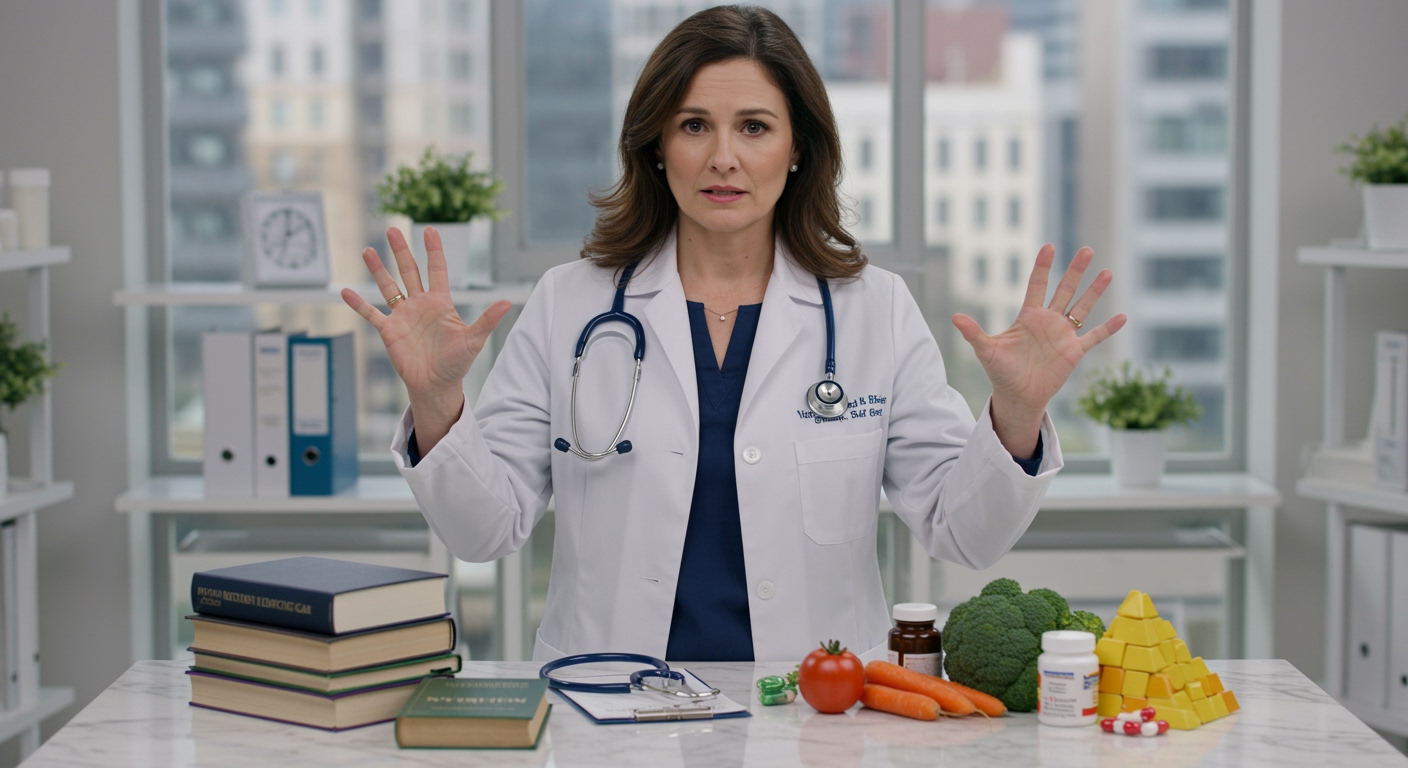✪ Key Takeaway: Medical schools provide only 19 hours of nutrition education over 4 years while diseases linked to diet kill millions yearly.
Introduction
Your doctor spent eight years learning to diagnose and treat diseases but received less nutrition training than a weekend cooking class provides.
This shocking reality explains why most doctors cannot answer basic questions about food and health connections.
Hi, I am Abdur, your nutrition coach and today I am going to expose the dangerous gap between medical training and nutrition science that affects your healthcare quality.
How Much Nutrition Do Medical Students Actually Learn?
Medical schools in the United States require an average of just 19 hours of nutrition education across four years of study.
To put this in perspective, medical students spend more time learning about rare genetic disorders that affect one in a million people than studying nutrition science that impacts every patient they will ever treat.
The Association of American Medical Colleges recommends 25 hours minimum, but most schools fall short even of this modest target.
Harvard Medical School, one of the most prestigious institutions, historically offered zero required nutrition courses until recent curriculum changes.
Many medical students graduate without understanding how insulin resistance develops from dietary patterns or why certain foods trigger inflammatory responses in the body.
This educational gap creates doctors who can prescribe medications for diabetes but cannot explain which foods help stabilize blood sugar naturally.
✪ Fact: Medical students receive more training on pharmaceutical interactions than food-drug interactions that affect treatment outcomes.
Why Do Medical Schools Ignore Nutrition Science?
Medical education follows a disease-centered model that focuses on diagnosing and treating illness rather than preventing it through lifestyle interventions.
This approach generates more revenue for healthcare systems because treating chronic diseases creates ongoing income streams while prevention reduces patient visits.
Medical school curricula are packed with complex subjects like pharmacology, pathology, and surgical techniques that leave little room for preventive nutrition education.
Faculty members often lack nutrition expertise themselves, having been trained in the same system that minimizes food science education.
The medical licensing exams test knowledge of drug mechanisms and disease processes but rarely include questions about nutritional biochemistry or dietary interventions.
This creates a cycle where future doctors see nutrition as less important because it does not appear on their board examinations.
✪ Pro Tip: Ask your doctor about their nutrition training background to understand their knowledge limitations in dietary advice.
What Happens When Doctors Lack Nutrition Knowledge?
Patients receive incomplete healthcare when their doctors cannot connect dietary patterns to health outcomes and disease development.
Many doctors default to prescribing medications for conditions that could be managed or reversed through targeted nutritional interventions.
Type 2 diabetes patients often receive insulin prescriptions without learning how specific foods affect their glucose metabolism and insulin sensitivity.
Heart disease patients get statin prescriptions but miss opportunities to address the root causes through anti-inflammatory diets and omega-3 fatty acid optimization.
This approach treats symptoms while ignoring the underlying nutritional factors that drive chronic disease progression.
Patients lose trust in medical advice when doctors cannot explain why certain foods worsen their conditions or how nutrient deficiencies contribute to their symptoms.
✪ Note: Studies show that 80% of chronic diseases could be prevented through proper nutrition and lifestyle modifications.
How This Affects Your Healthcare Decisions?
You cannot rely solely on your doctor for nutrition guidance because they likely received less food science education than many fitness trainers.
Most doctors refer patients to registered dietitians when nutrition questions arise, acknowledging their own knowledge limitations in this critical area.
This referral system creates delays in care and additional costs that could be avoided if doctors received adequate nutrition training during medical school.
Patients must become educated consumers who research nutrition science independently to make informed decisions about their health.
The rise of functional medicine practitioners reflects growing demand for healthcare providers who understand the connection between food and healing.
You need to seek nutrition education from qualified sources rather than expecting comprehensive dietary guidance from traditionally trained physicians.
✪ Pro Tip: Work with both your doctor for medical care and a qualified nutrition professional for dietary guidance to get complete healthcare.
The Bottom Line
The medical education system fails patients by prioritizing disease treatment over nutrition prevention, creating doctors who cannot address the root causes of chronic illness.
Your health depends more on what you eat than what pills you take, but your doctor learned more about the pills.
Share your thoughts about this nutrition education gap in the comments below and let me know if you have experienced this disconnect with your own healthcare providers.
References
At NutritionCrown, we use quality and credible sources to ensure our content is accurate and trustworthy. Below are the sources referenced in creating this article:
- Harvard Medical School: Nutrition Education in Medical Schools
- NCBI: Nutrition Education in US Medical Schools
- PMC: Nutrition Education in Medical School
- AAMC: Medical Education Guidelines





